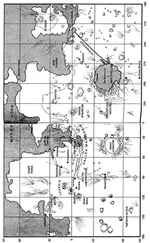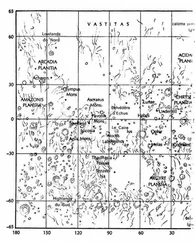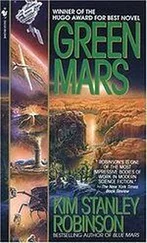Dmitri, coming in the lab, said, “From each according to his capacities, to each according to his needs!”
“No, that’s not the same,” Vlad said. “What it means is, You get what you pay for!”
“But that’s already true,” John said. “How is this different from the economics that already exists?”
They all scoffed at once, Marina most persistently: “… there’s all kinds of phantom work! Unreal values assigned to most of the jobs on Earth! The entire transnational executive class does nothing a computer couldn’t do, and there are whole categories of parasitical jobs that add nothing to the system by an ecologic accounting. Advertising, stock brokerage, the whole apparatus for making money only from the manipulation of money— that is not only wasteful but corrupting, as all meaningful money values get distorted in such manipulation.” She waved a hand in disgust.
“Well,” Vlad said, “we can say that their efficiency is very low, and that they predate on the system without having any predators, so that they are either the top of the chain or parasitical, depending on how you define it. Advertising, money brokering, some types of manipulation of the law, some politics. . ”
“But all of these are subjective judgments!” John exclaimed. “How have you actually assigned caloric values to such a variety of activities?”
“Well, we have done our best to calculate what they contribute back to the system in terms of well-being measured as a physical thing. What does the activity equal in terms of food, or water, or shelter, or clothing, or medical aid, or education, or free time? We’ve talked it over, and usually everyone at Acheron has offered a number, and we have taken the mean. Here, let me show you. . ”
And they would talk through the evening about it before the computer screen, and John would ask questions, and plug Pauline in to record the screens and tape the discussions, and they would go through the equations and jab their fingers at the flow charts, and then stop for coffee and perhaps take it up to the crest, to pace the length of the greenhouse arguing vehemently about the human value in kilocalories of plumbing, opera, simulation programming and the like. They were up on the crest, in fact, one afternoon near sunset, when John looked up from the equation on his wristpad, and stared up the long slope toward Olympus Mons.
The sky had darkened. It occurred to him that it might be just another double eclipse: Phobos was so close overhead that it blocked a third of the sun when it crossed in front of it, and Deimos about a ninth, and a couple times a month they crossed at the same time, causing a shadow to be cast across the land, as if a film had got in your eye, or you had had a bad thought.
But this wasn’t an eclipse; Olympus Mons was hidden from view, and the high southern horizon was a fuzzy bronze bar. “Look at that,” he said to the others, and pointed. “A dust storm.” They hadn’t had a global dust storm in over ten years. John called up the weather satellite photos on his wristpad. The origin of the storm had been near the Thaumasia mohole, Senzeni Na. He called up Sax and found him blinking philosophically, stating his surprise in mild tones.
“Winds at the edge of the storm were up to six hundred and sixty kilometers an hour,” Sax said. “A new planetary record. It looks like this is going to be a big one. I thought the cryptogamic soils in the storm start-up zones would have dampened them, or even stopped them. Obviously that model had something wrong with it.”
“Okay, Sax, too bad about that, but it’ll be okay, I gotta go now because it’s rolling right down on us now and I want to watch.”
“Have fun,” Sax said deadpan before John clicked him off. Vlad and Ursula were scoffing at Sax’s model— temperature gradients between biotically defrosted soil and the remaining frosted areas would be greater than ever, and the winds between the two regions correspondingly fiercer, so that when they finally hit loose fines, off they would go. Totally obvious.
“Now that it’s happened,” John said. He laughed and moved down the greenhouse to watch the storm’s approach by himself. Scientists could be so catty.
The wall of dust rolled down the long lava slopes of Olympus Mons’s northern aureole. It had already halved the land visible since John first saw it, and now it approached like a giant breaking wave, a billowy chocolate milk wave 10,000 meters high, with a bronze filigree foaming up and off it, leaving great curved streamers in the pink sky above. “Wow!” John cried. “Here it comes! Here it comes!” Suddenly the crest of the Acheron fin seemed located a great distance above the long narrow canyons of the fossae below them, and lower fin ridges reared like dragon backs out of the cracked lava: a wild place from which to face the onrush of such a storm, too high, too exposed. John laughed again, and pressed himself against the southern windows of the greenhouse, looking down, out, around, shouting, “Wow! Wow! Look at it go! Wow!”
And then suddenly they were overwhelmed, dust flying over them, darkness, a high whooshing shriek. The first impact against Acheron ridge caused a wild flurry of turbulence, quick cyclonic twisters that appeared and disappeared, horizontal, vertical, at angles up the few steep gullies in the ridge. The general shriek was punctuated by booms as these disturbances hit the ridge and collapsed. Then with dreamlike rapidity the wind settled into a smooth standing wave, and the dust rushed up past John’s face; the pit of his stomach lifted, as if the greenhouse were suddenly dropping with violent speed. Certainly that’s what it looked like, as the ridge had caused a ferocious updraft. Stepping back, however, he saw the dust streaming overhead and then off to the north. On that side of the greenhouse he could see for a few kilometers, before the wind smashed into the ground again and cut off the view in continual explosions of dust. “Wow!”
His eyes were dry, and his mouth felt a bit caked. Lots of the fines were less than a micron across— was that a faint sheen of them, there already across the bamboo leaves? No. Only the weird light of the storm. But there would be dust on everything, eventually. No seal system could keep it out.
Vlad and Ursula were not completely confident of the greenhouse’s ability to withstand the wind, and they encouraged everyone up there to go downstairs. On the way down John reestablished contact with Sax. Sax’s mouth was bunched into a tighter knot than usual. They would lose a lot of insolation with this storm, he said evenly. Equatorial surface temperatures had been averaging eighteen degrees higher than the baseline figures, but temperatures near Thaumasia were already down six degrees, and they would continue to plummet for the duration of the storm. And, he added with what seemed to John an almost masochistic completeness, the mohole thermals would loft the dust higher than ever before, so that it was all too possible that the storm might last for a long time.
“Buck up, Sax,” John advised. “I think it’ll be shorter than ever before. Don’t be so pessimistic.”
Later on, when the storm was going into its second M-year, Sax would remind John of this prediction with a little laugh.
• • •
Traveling during the storm was officially restricted to the trains and to certain heavily used double-transponder roads, but when it became obvious that it wasn’t going to die back down that summer, John ignored the restrictions and resumed his wanderings. He made sure that his rover was well stocked, he had a backup rover follow him, and he had an extra-powerful radio transmitter installed. That and Pauline in the driver’s seat would be enough to get him around most of the northern hemisphere, he figured; rover breakdowns were rare, because of the really comprehensive internal monitoring systems hooked into their control computers. Two rover breakdowns at once was unheard of, there had been only a single recorded fatality as a result of that happening. So he said good-bye to the Acheron group, and took off again.
Читать дальше
Конец ознакомительного отрывка
Купить книгу












